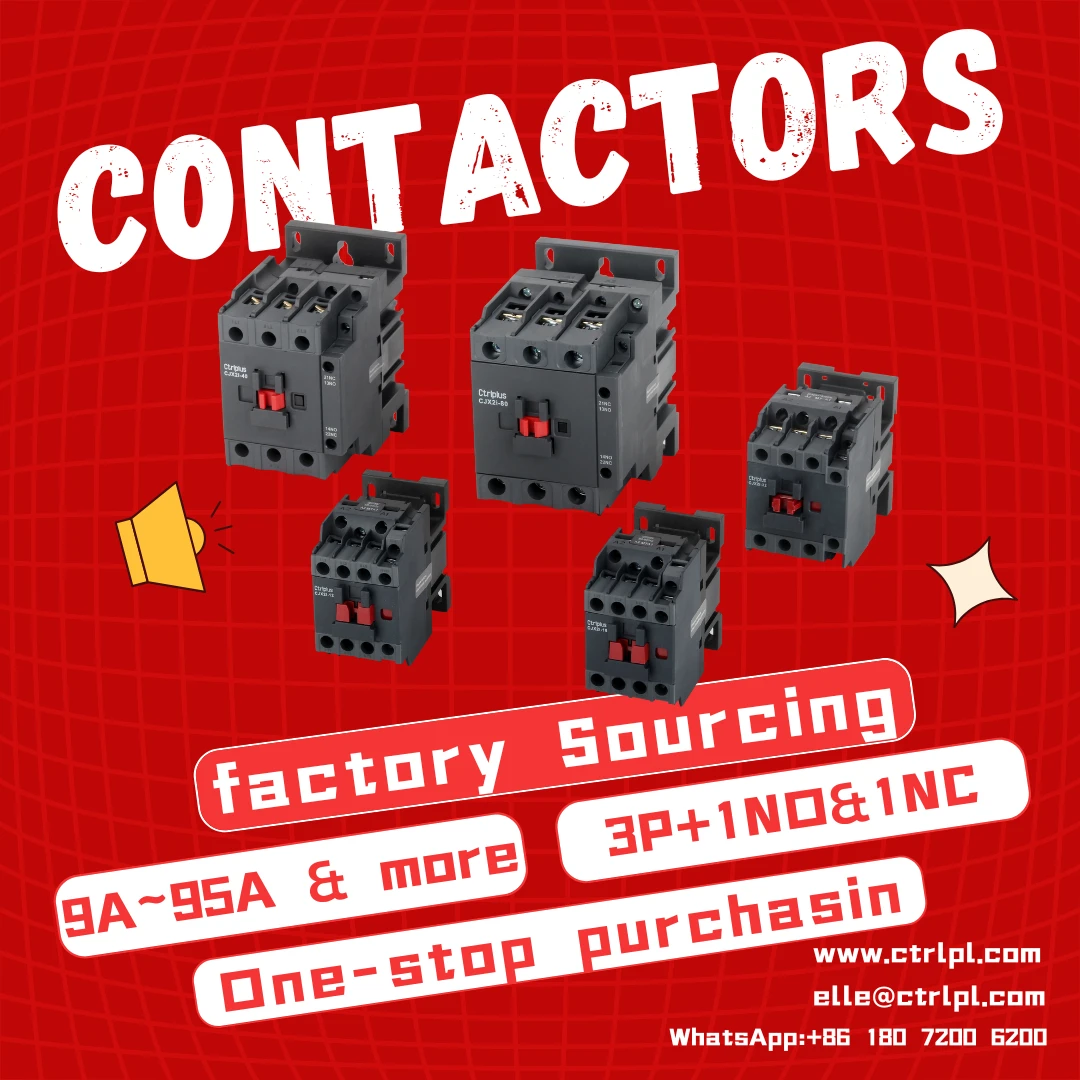
Introduction to AC Contactors
AC contactors are a crucial part of many electrical systems, designed to control the flow of electricity in circuits. This component is essential for switching electrical equipment on and off in various applications, ranging from industrial to residential setups. To truly understand an AC contactor, we must first look into its function and the role it plays in electrical systems.
What is an AC Contactor?
An AC contactor is an electrically-controlled switch used to manage the flow of AC (alternating current) power to devices. It is designed to switch large currents on and off, making it ideal for controlling heavy-duty machinery, HVAC systems, and lighting circuits. This switch is activated by a low voltage signal, which makes it incredibly efficient for automatic operations.
How Does an AC Contactor Work?
The basic principle behind an AC contactor is straightforward. When an electric current passes through the coil of the contactor, it generates a magnetic field. This magnetic field pulls the contacts together, closing the circuit and allowing electricity to flow to the connected load. Once the signal is removed, the magnetic field dissipates, and the contacts open, breaking the circuit.
The Components of an AC Contactor
An AC contactor consists of several key components that work together to ensure its proper operation. Let’s break them down:
Main Contact
The main contact is responsible for making and breaking the circuit connection. It is designed to handle the large current required to power industrial equipment, so it is made of durable materials to resist wear and tear over time.
Coil
The coil is the core of the contactor. It creates the magnetic field that pulls the contacts together when energized. The coil operates on low voltage, typically 24V, 110V, or 220V, and its ability to generate a strong magnetic field makes it a vital part of the contactor’s function.
Auxiliary Contacts
Auxiliary contacts are secondary contacts used to send signals to other parts of a system or to show the status of the contactor (whether it is open or closed). They can be normally open (NO) or normally closed (NC), depending on the requirements of the application.
Applications of AC Contactors
AC contactors find their way into a wide range of applications. Let’s explore where they are used and why they are essential.
Industrial Use
In industrial settings, AC contactors are used to control high-power machines and equipment, such as motors, compressors, and heating systems. They ensure these devices operate smoothly and reliably, offering control over power distribution in large factories or plants.
Home Applications
AC contactors are also used in residential setups, especially in HVAC systems and electric water heaters. For instance, when your thermostat sends a signal to turn on the air conditioning or heating system, it’s the contactor that completes the circuit and activates the system.
Benefits of Using an AC Contactor
Why are AC contactors such a popular choice? Let’s look at some of the benefits they offer:
Efficiency
AC contactors are known for their efficiency. They can switch large amounts of current with minimal energy consumption, making them a cost-effective option for controlling electrical equipment.
Safety
These devices are designed with safety in mind. They are built to handle large currents without overheating or short-circuiting, reducing the risk of fires or electrical hazards. Their ability to work with low-voltage control circuits also enhances safety by reducing the chances of accidental activation.
Durability
AC contactors are designed to last. They can withstand numerous switching cycles without significant wear. This makes them ideal for use in heavy-duty industrial applications where reliability and longevity are crucial.
AC Contactor vs. Relay: What’s the Difference?
While both relays and contactors serve similar purposes, there are some key differences. Let’s explore this comparison:
Understanding Relays
A relay is an electrically operated switch that can control low-voltage circuits. It is often used in systems where a small amount of electricity is needed to control a larger load. However, relays are typically not built to handle high currents or operate for extended periods like contactors.
When to Choose a Contactor Over a Relay
If you need to control high-power equipment or machinery, an AC contactor is your best bet. Relays are more suitable for low-power applications, while contactors are designed to handle the rigorous demands of industrial systems
Common Problems and Troubleshooting
Like any electrical component, AC contactors can run into issues over time. Let’s go over some common problems and how to troubleshoot them.
Coil Malfunctions
If the coil fails to energize, the contactor won’t function. This could be due to a faulty power supply or a broken coil. Replacing the coil or ensuring proper voltage is supplied to the contactor should fix this issue.
Contact Issues
Over time, the contacts can wear out, leading to poor connections or failure to close the circuit properly. Regular maintenance and replacing worn contacts can help avoid this problem.
Conclusion
AC contactors are vital components that play an essential role in controlling electrical circuits across various sectors. From industrial machines to home appliances, their efficiency, safety, and durability make them indispensable in modern electrical systems. Whether you’re an engineer, technician, or homeowner, understanding how contactors work and how to troubleshoot them will help ensure your systems run smoothly and safely.
FAQs
Here are some frequently asked questions that may help clarify your doubts about AC contactors:
FAQ 1: How long does an AC contactor last?
With proper maintenance, an AC contactor can last for several years, even up to 10-15 years, depending on usage and environment.
FAQ 2: Can I use a contactor for DC circuits?
AC contactors are designed specifically for alternating current. For DC circuits, you would need a DC-rated contactor.
FAQ 3: How do I know if my AC contactor is faulty?
Signs of a faulty contactor include an inability to close the circuit, overheating, or sparking. Regular inspections and testing with a multimeter can help identify problems.
FAQ 4: Is it safe to replace an AC contactor myself?
If you’re qualified and experienced in electrical work, you can replace the contactor. Otherwise, it’s best to call a professional to ensure safety.
FAQ 5: Can contactors be used for residential applications?
Yes, contactors are used in residential systems, such as air conditioning, heating systems, and electric water heaters, to control the power flow.
Post time: 2025-02-21
 Projects
Projects Solutions
Solutions Services
Services News
News About Us
About Us





